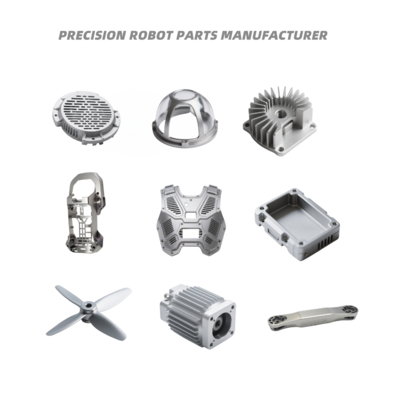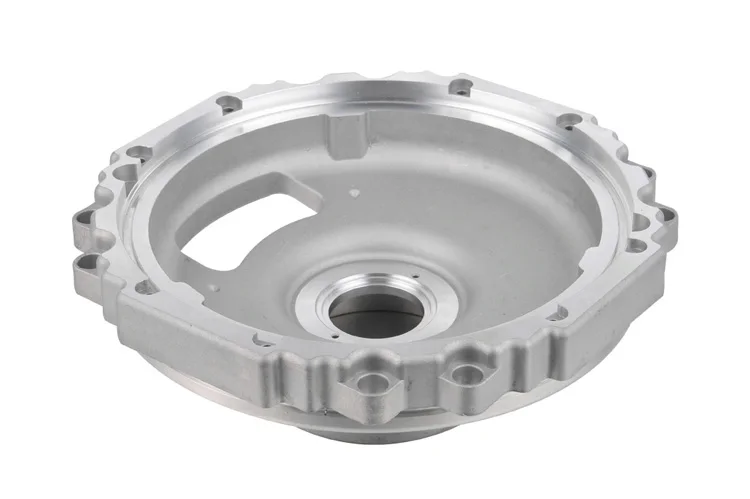Aluminum casting techniques that deliver strong components
Wiki Article
The Duty of Light Weight Aluminum Foundries beforehand Lightweight Manufacturing Solutions
Aluminum foundries substantially add to the development of light-weight production solutions. Their ingenious spreading modern technologies generate high-strength, lightweight elements crucial for industries like automotive and aerospace. This improvement not just improves product performance however additionally advertises sustainability via making use of recycled materials. As these factories adapt to arising practices and innovations, they lead the way for future advancements in manufacturing efficiency and environmental responsibility. What lies in advance in this transformative trip?The Benefits of Lightweight Products in Manufacturing
As markets significantly seek effectiveness and sustainability, the adoption of lightweight materials in production has arised as a crucial strategy - Precision aluminum casting. These products, specifically light weight aluminum and composites, use countless advantages that boost manufacturing procedures and item performance. Largely, their reduced weight contributes to reduce power intake throughout transportation and operation, bring about substantial expense savingsFurthermore, light-weight materials help with the style of even more complicated geometries, allowing for greater development in item growth. This flexibility commonly leads to boosted performance and efficiency, dealing with the progressing needs of modern consumers.
Furthermore, using light-weight products can enhance the longevity of products because of their resistance to corrosion and fatigue. This toughness not only lowers upkeep prices but also sustains sustainability initiatives, as longer-lasting products contribute to much less waste. To sum up, the benefits of lightweight materials are pivotal in driving performance, development, and environmental duty in production.
Advancements in Light Weight Aluminum Casting Technologies
Current innovations in light weight aluminum casting technologies are changing the manufacturing landscape, especially in the manufacturing of lightweight components. Advancements such as high-pressure die spreading and vacuum cleaner pass away casting have actually greatly enhanced the accuracy and surface area finish of light weight aluminum components - Aluminum Foundry. These approaches enable the creation of intricate geometries while decreasing material waste and enhancing mechanical residential or commercial properties
In addition, the execution of real-time monitoring systems guarantees quality control throughout the spreading process, leading to even more constant item results. Collectively, these developments not only improve the efficiency of aluminum parts however likewise sustain the sector's shift in the direction of more sustainable production techniques.
Applications of Light Weight Aluminum Parts in Numerous Industries
While aluminum elements have long been made use of in numerous markets, their versatility and light-weight homes remain to drive cutting-edge applications throughout industries such as vehicle, aerospace, and building. In the auto sector, light weight aluminum is increasingly utilized for engine blocks, wheels, and body panels, improving gas efficiency and efficiency. Aerospace makers take advantage of aluminum for aircraft frameworks and components, taking advantage of its strength-to-weight ratio to enhance gas economic situation and haul capability.In the construction field, aluminum is preferred for home window structures, roofing, and architectural elements, supplying resilience and resistance to rust while reducing general building weight. Additionally, the electrical and electronic devices markets profit from aluminum's conductivity and light-weight nature, using it in wiring, rooms, and heat sinks. These diverse applications highlight the critical function of light weight aluminum elements, which not just satisfy market needs but additionally add to improvements in item design and performance throughout multiple fields.
Sustainability and Power Performance in Light Weight Aluminum Foundries
The aluminum factory market plays a crucial role in promoting sustainability and energy performance, particularly as demand for lightweight parts remains to grow throughout various sectors. Shops are significantly taking on environmentally pleasant practices, such as making use of recycled light weight aluminum, which substantially decreases power consumption and greenhouse gas exhausts redirected here compared to primary light weight aluminum manufacturing.Improvements in casting technologies boost power effectiveness by enhancing the melting processes and decreasing waste. Strategies like die spreading and financial investment casting enable for specific material use, decreasing excess and scrap.
In addition, several factories are buying renewable resource resources to power operations, additionally lowering their carbon impact. Implementing power administration systems enables factories to keep track of and improve power usage, guaranteeing they operate at peak efficiency.

Future Patterns in Lightweight Production Solutions
Just how will arising innovations form the future of light-weight manufacturing options? Advancements such as innovative products, automation, and additive manufacturing are readied to redefine manufacturing procedures. The assimilation of clever manufacturing modern technologies, consisting of the Net of Points (IoT) and expert system (AI), will certainly allow real-time monitoring and optimization, enhancing performance and reducing waste.
As sustainability continues to be a critical concern, light-weight services will increasingly focus on reusing and reusing products, straightening with round economic situation principles. This advancement in lightweight manufacturing will not only enhance item efficiency but likewise add to ecological objectives, making certain that the industry continues to be affordable in a quickly changing market landscape.
Often Asked Concerns
How Do Light Weight Aluminum Foundries Ensure High Quality Control in Production?
Light weight aluminum factories ensure quality assurance in manufacturing with extensive screening, standardized procedures, and continual tracking - Aluminum Foundry. They execute knowledgeable employees and sophisticated modern technologies to maintain consistency, minimize defects, and meet sector standards throughout the manufacturing processWhat Are the Main Tests Encountered by Aluminum Foundries?
Aluminum factories face challenges such as changing resources expenses, maintaining manufacturing performance, ensuring constant quality, adjusting to technological innovations, and conference environmental regulations, every one of which influence their total functional performance and competitiveness in the market.Just How Does Aluminum Recycling Impact Shop Operations?
Light weight aluminum recycling considerably improves foundry procedures by decreasing basic material costs, lessening power intake, and decreasing ecological impact. This lasting method allows factories to improve efficiency while meeting boosting demand for light-weight, high-performance aluminum products.What Skills Are Needed for Employees in Aluminum Foundries?
Employees in aluminum foundries require abilities in metallurgy, machining, high quality control, and security techniques. Proficiency in running machinery, comprehending alloy residential or commercial properties, and analytical are additionally necessary for effective manufacturing and keeping high safety and security criteria.Just How Do Light Weight Aluminum Foundries Take Care Of Waste Monitoring?
Aluminum foundries manage waste through reusing scrap steel, utilizing efficient waste partition methods, and adhering to ecological guidelines. They execute lasting methods to lessen land fill contributions, ensuring that hazardous products are disposed of responsibly.Light weight aluminum shops substantially contribute to the development of lightweight manufacturing solutions. Recent advancements in light weight aluminum casting innovations are changing the production landscape, particularly in the manufacturing of light-weight parts. While light weight aluminum components have actually long been made use of in numerous sectors, their flexibility and lightweight homes continue to drive innovative applications across industries such as automobile, aerospace, and building. In addition, the electric and electronic devices markets benefit from aluminum's conductivity and light-weight nature, using it in electrical wiring, enclosures, Go Here and warm sinks. The aluminum factory industry plays an essential role in promoting sustainability and power performance, specifically as demand for lightweight elements proceeds to expand throughout numerous sectors.
Report this wiki page